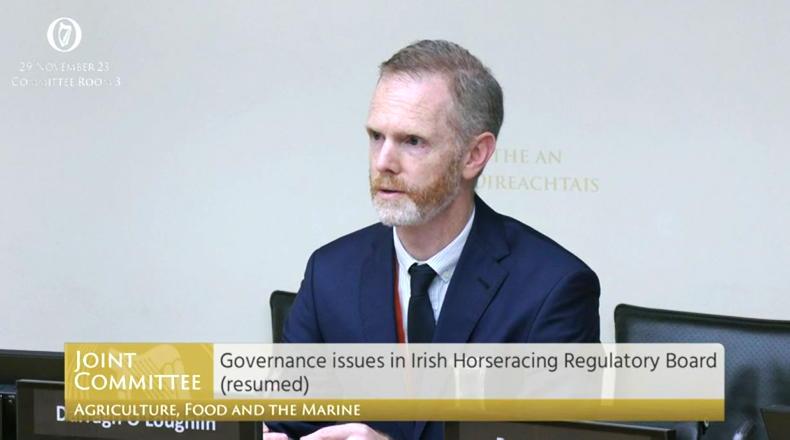THE penalties for breaches of the interference and whip rules in Irish racing will increase significantly from July.
Although the rules themselves - or their interpretation by the stewards - are not changing, the sanctions for breaking the rules will be more severe.
From July 3rd, the raceday stewards will implement these new guidelines, which introduce a higher entry point for riders breaching either rule. At the moment riders with a clean record over the previous 12 months can expect no more than a caution for an initial breach of the whip rules, with incremental increases for subsequent offences.
Starting next month, a first offence will incur a two-day ban and the suspension effectively doubles for subsequent breaches within a rolling nine-month period.
There is currently no fixed penalty structure for careless riding incidents, with each case dealt with in isolation by raceday stewards. That will change next month when jockeys can expect to receive bans ranging from two days to 21 days for a first offence, with heavier punishments to follow for subsequent offences within a rolling 12-month period.
A rider with a clean record who is found to have ridden carelessly will receive at least a two-day suspension. To allow for a period of adjustment, the raceday stewards may show some discretion and issue a lower sanction for this first offence but this rider will be issued with a sanction of no less than four days should they subsequently be found in breach of the careless riding rule for a second time. The more serious riding offences of improper riding and dangerous riding will have significantly higher first-time sanctions of seven and 21 days respectively.
In all cases, the stewards may issue higher penalties than the guidelines should they deem the offence merits a higher penalty.
Whip breaches
With regard to whip breaches, similar to interference, there will be a higher entry point, with increased sanctions for every strike above the permitted level of eight strokes, and additional penalties for technical offences such as arm above shoulder height or time to respond.
Again, to allow for a period of adjustment, the raceday stewards may show some discretion to a rider on his first offence for what they deem a minor breach of the whip rule, but this rider will incur at least a four-day suspension for any subsequent breach of the whip rules within the next nine months.
Data review
According to the IHRB, these new penalty guidelines were proposed by the IHRB Stewarding Committee, following an extensive review of data, races and penalties issued in recent years and following a period of consultation between IHRB and the Irish Jockeys Association. The IHRB Board of Directors approved the revised guidelines for introduction following the Irish Derby.
There have also been some minor amendments to the rules on suspensions, whereby riders incurring a two-day suspension or less can choose to serve the suspension on dates of their choosing upon agreement with IHRB. The Group 1/Grade 1 exemption has been increased from three days to four days, meaning riders incurring a four-day suspension or less can defer any of these dates should they fall on a Group 1 or Grade 1 day.
Paul Murtagh, IHRB Head of Raceday Operations commented: “We welcome the new penalty guidelines which have been approved by the IHRB Board and believe they will assist in ensuring Irish racing is safer for all participants, thus demonstrating our commitment to the welfare of both horse and rider.
Change behaviour
“Having spent some time considering if the IHRB should adapt either their rules or penalty guidelines or both in relation to the whip, the IHRB Stewarding Committee felt it prudent at this time to leave the rules as they are and focus on the penalty guidelines, in the hope that greater penalties will effect a change in rider’s behaviour. In that context, the impact and effectiveness of the guidelines will be kept under review.
“We were also cognisant that breaches of the interference rule potentially impact participant’s safety and welfare to a greater extent and so we wanted to address both riding offences together so that, in the round, we have penalties proportionate to the seriousness of the offence.
“I believe we have achieved some balance and proportionality with these new guidelines, which we hope will focus riders’ minds during the heat of battle on adhering to the rules, for the safety and welfare of both themselves, their mounts and their colleagues.
“I want to thank Andrew Coonan, executive secretary of the Irish Jockeys Association, his colleague Barry Geraghty and members of the IJA committee for their frank and constructive engagement with us throughout this process.”
“Significant departure”
Andrew Coonan commented: “These new guidelines mark a significant departure from the present penalty structure and, while I am always concerned that increasing penalties can lead to a loss of earnings for riders, I am pleased that the IHRB took on board many of the proposals that the IJA Committee suggested.
“Importantly, the rules themselves, which are well understood by riders, at this stage, are not fundamentally changing and that is very helpful.
“Throughout this process there was active engagement between the respective organisations and I very much appreciate the time and energy that the board members of the IJA put into these discussions.
“The new penalty structures reflect the importance attaching to rider’s safety and indeed the welfare of the horse and that is entirely appropriate.
“Such a significant change as this can undoubtedly create difficulties between riders and their governing bodies. However, these new changes have come about following extensive consultation and I believe that is positive for both the IHRB and all members of the IJA.”


 This is a subscriber-only article
This is a subscriber-only article
 It looks like you're browsing in private mode
It looks like you're browsing in private mode











SHARING OPTIONS: